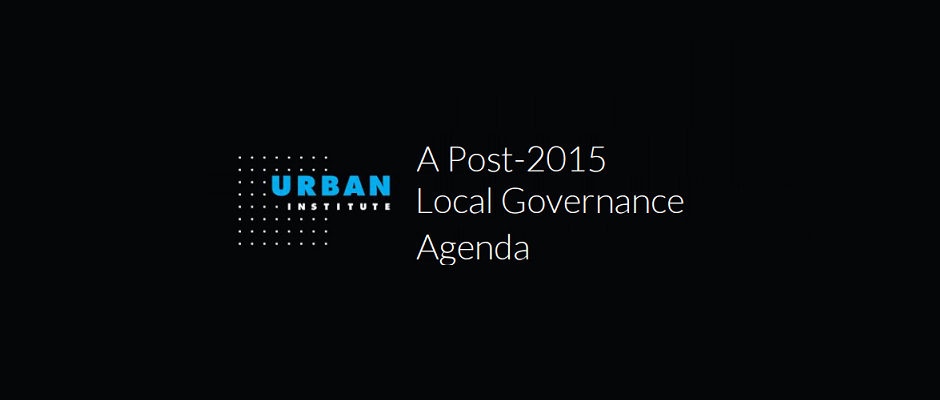
The role of local governance within global development is approaching an important inflection point. I am not saying this because public consultations and opinion surveys conducted by the United Nations Development Program identified good governance as the second-most important development theme while formulating the post-2015 development goals (behind education). In fact, my assertion has little or nothing to do with the reformulation of the global development agenda taking place this year. Because the post-2015 Sustainable Development Goals (SDGs) need to be acceptable to leaders from Uruguay to Zimbabwe, and from Indonesia to Iran, I expect the SDGs to say very little, if anything, about good governance.
Governance by its very nature is different from other development areas, such as global health or sanitation. Whereas most countries might be willing to commit to building more classrooms if this would lead to more international development assistance and better education outcomes, very few political leaders would be willing to fundamentally overhaul their political systems or the way in which their public sectors are managed—regardless of how much international aid they receive—if this would make it harder for the country’s leadership to stay in power. This point notwithstanding, I expect good governance—and good local governance, in particular—to play an increasingly important role in the global development agenda over the next 15 years because of fundamental changes in the geopolitical and global economic currents that drive global development.
The main implication of the realization that “all development is local” is that regardless of the mechanism or type of decentralization or “localization” that is ultimately chosen, in the end, we cannot ignore the vertical governance mechanisms and multilevel service delivery mechanisms that are needed to ensure the effective delivery of public services at the local level. In fact, it is most likely in this “last mile” of public service delivery where the greatest progress in development outcomes can be made.
At the same time it should be recognized that local governments are not free from the political considerations that have created development obstacles at the national level. Like their central government counterparts, local government officials are not inherently and selflessly motivated to achieve development outcomes. Instead, local government stakeholders themselves are political actors with their own narrow agendas; without appropriate incentives and accountability mechanisms, they are susceptible to local elite capture on one hand and central state capture on the other hand.
In this context, a number of topics are emerging as leading themes in an emerging post-2015 local governance agenda. To the extent that global development seeks to implement evidence-based policy solution, and given the scant attention that has been paid in recent years to local governance as a development issue, it would be prudent for development organizations to invest in the coming years in the state of knowledge in five topics related to local governance:
- A Basic Stocktaking of Local Governance Institutions.
- Political Economy Analysis and Local Governance
- Open Local Governance
- The Governance of Localized Public Services
- The Dividend of Inclusive Local Governance and Social Resilience
Access the complete Urban Institute Policy Brief by Jamie Boex:
http://www.urban.org/research/publication/post-2015-local-governance-agenda





